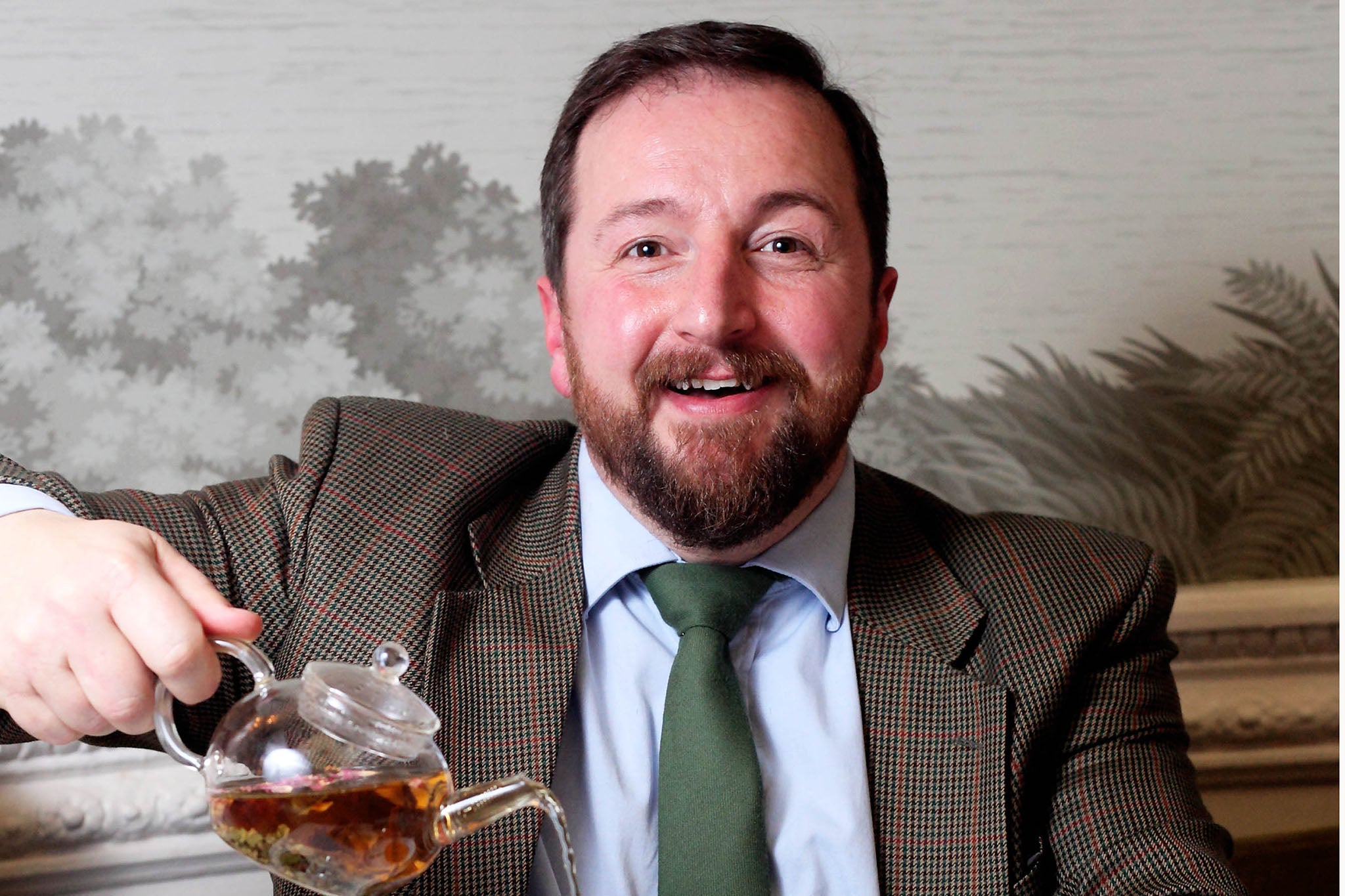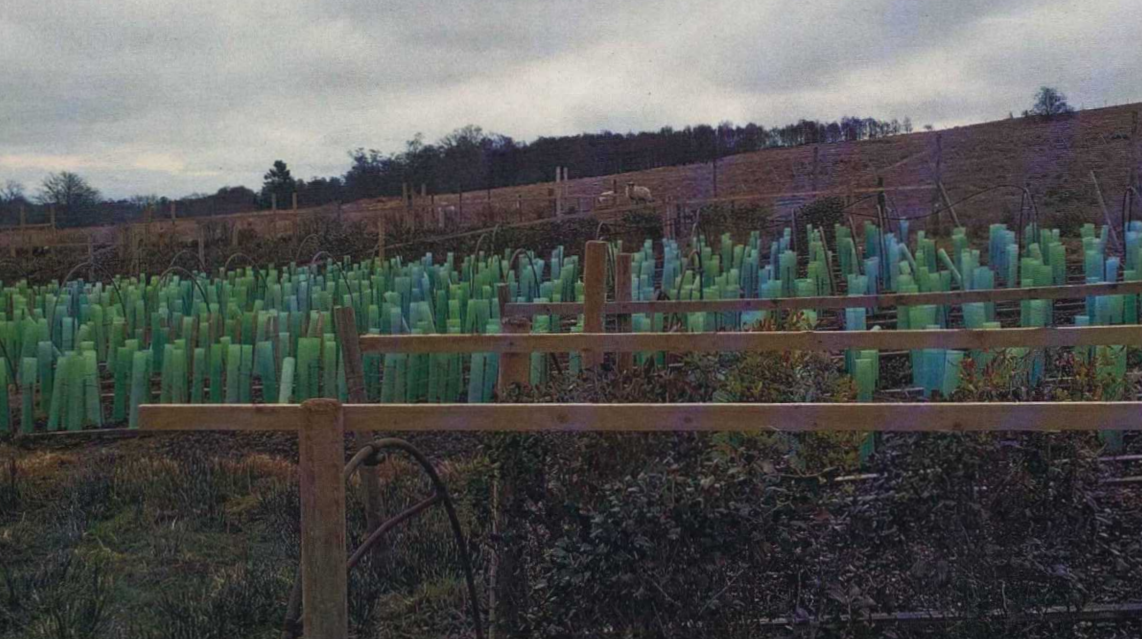Scam in a teacup: The fraudster who conned luxury brands into buying fake ‘Scottish tea’
A company acting on behalf of Fortnum & Mason was among those tricked by Thomas Robinson

A man who amassed more than £550,000 by selling tea he falsely claimed was cultivated in Scotland to high-end businesses has been jailed for three and a half years.
Thomas Robinson, 55, operated under the guise of 'The Wee Tea Plantation', asserting that he had developed innovative techniques to grow the tea at his Perthshire estate. He fraudulently sold the product to prominent clients in the hospitality sector.
However, the tea was in fact sourced from wholesalers and cultivated outside of Scotland, despite Robinson's claims. His deception spanned from January 2014 to February 2019, ultimately leading to his conviction.
Representatives of the Balmoral Hotel, the Dorchester Hotel and a company acting on behalf of Fortnum & Mason were among those tricked by the fraudster, who had claimed to have sold tea to customers including Kensington Palace.
A Food Standards Scotland (FSS) investigation found Robinson also misled genuine Scottish tea growers by selling them plants under the false pretence they were a unique, locally-grown variety.
On May 25, he was found guilty of two counts of fraud to a value of almost £553,000 after a trial at Falkirk Sheriff Court, which followed an investigation by FSS.
Robinson, also known as Tam O’Braan and Thomas O’Brien, tried to bolster his credibility by fabricating academic qualifications and industry awards.
On Wednesday, Robinson was sentenced at Stirling Sheriff Court. Hours earlier, his lawyer withdrew from the case.
Representing himself, Robinson begged for “compassion” as he appeared by videolink from HMP Low Moss, wearing a green sweatshirt.
Sheriff Keith O’Mahony refused a bid to defer sentence and said it was in the public interest that it went ahead, as Robinson was “articulate” enough to represent himself.

Robinson, who told the court he has four children and attends church, claimed he awoke every morning in his cell plagued with guilt about the “reputational damage” caused to genuine Scottish tea growers.
“I’ve had time to wrestle with this over sleepless nights, coming to realise how wrong and stupid I’ve been,” he told the court.
“The damage this has on all concerned, the stigma of misleading others… I should have been much more transparent and owned up to the situation. Hubris and arrogance made me believe I did my best.
“The method by which you could grow tea in Scotland, something I was told you couldn’t do… I didn’t know the best, I didn’t act as I should have. I go to church, I’m perfectly aware that a sin is not only to do something, but also not to do the right thing.
“The shame of that hangs over me every morning every time I wake up in my cell. Central to that guilt I’m responsible for reputational damage of those involved and reputational damage of growing tea in Scotland.
“It was a scheme I received support from the Scottish Government. I solemnly hope my actions have not detracted from the success which can be achieved for people who want to grow tea in Scotland. I can only offer my sincere apologies if my actions have besmirched that capability.”
He told the court he had experienced “suicidal emotions” due to guilt and had been “too ashamed to explain” to his four children.
Robinson claimed he would not reoffend and had learnt from his actions, “not only from shock of my conviction but truthful acceptance of what I have done”.
He added: “I solemnly would ask that the above is taken into consideration not as an excuse but an acceptance of the serious nature of my actions and inactions, and I throw myself on the mercy of the court for your compassion.”
Sheriff O’Mahony said the jury had “generally rejected” Robinson’s evidence, and the charges spanned five years and totalled £552,988.
He added: “By any measure these convictions must be regarded as significant. Mr O’Brien demonstrated significant planning, he was persistent, he repeatedly made false statements.
“These charges are not victimless, witness after witness gave evidence and said they would not have had the transaction if they had known. They were convinced on false pretences to hand over significant sums of money.”
Robinson put his head in his hands as the three-and-a-half year sentence was handed down.
Helen Nisbet, procurator fiscal for Tayside, Central and Fife, said: “Individuals, businesses, and genuine Scottish tea growers suffered financial and reputational harm as a consequence of Robinson’s deceit.
“But thanks to partnership working between Food Standards Scotland, Police Scotland and the Crown Office and Procurator Fiscal Service, he has been brought to account for his crimes.
“We are committed to tackling financial crime of this kind.”
Ron McNaughton, of FSS, said: “We welcome today’s sentencing as a clear signal that food fraud is a serious crime with serious consequences.
“A three-and-a-half year custodial sentence reflects the scale and impact of Mr Robinson’s deception. His actions caused real financial and reputational harm to individuals, businesses and a developing sector of genuine Scottish tea producers.
“This outcome is the result of a complex and painstaking investigation involving a dedicated team at FSS and the co-operation of partner agencies and key witnesses.
“It demonstrates that those who set out to mislead consumers and defraud businesses will be held accountable.
“Food fraud undermines consumer trust and damages the integrity of Scotland’s globally respected food and drink sector. We remain committed to detecting and disrupting criminal activity of this nature.”
Bookmark popover
Removed from bookmarks